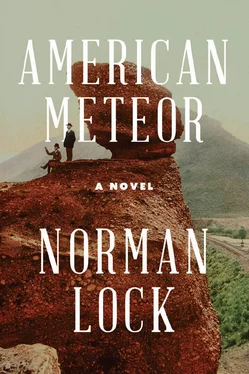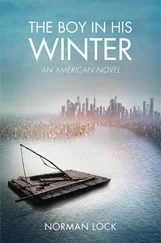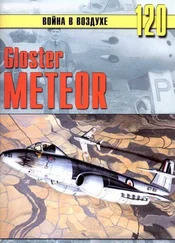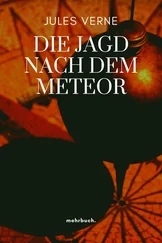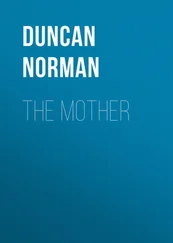The rebel I had meant to shoot stepped toward me over gray stubble and dead men of both factions, intending to brain me with the butt end of his musket. I still recall how his eyes — they did not shine — looked dead and goggled, like those of a fish at its last gasp. I think he resented me because he was obliged to kill me. I reached toward him with my bayonet, idly, as you might fork up a last morsel of meat, though your appetite was lost; touched the place where his vital spirits congregated; and watched him dangle a moment (long as eternity) and then drop. I had killed my first man. I wonder if I meant to. No, I don’t think will or even wish entered into it. I pierced him as mindlessly as a dead frog will jerk when given a galvanic shock. It was a case of murder by accident.
Five Forks, Virginia, April 1, 1865
I’ll describe, as well as I am able, the Battle of Five Forks and then be done with the war, except for its aftermath. I say “as well as I am able” not to make a show of modesty but, rather, to acknowledge the befuddled senses of a man in battle, where fear, misery, noise, cannon and musket smoke make for each combatant a kind of bell jar. Think of an insect trapped under glass. What must it feel — if so lowly a creature can be said to feel — to find itself all of a sudden cut off from the world it knew? That’s what it’s like for a man in a fight for his life. To be separated profoundly from his intellect; to exist solely in his body; to be preoccupied entirely with the body’s survival. To hell with the mind! Inside the bell jar, a man has no more to do with thoughts, doctrines, a cause célèbre, his previous sentiments and affections than a bug would. Life, its color and complexity, is reduced — like a mess of stew bones boiling in a pot — to an elemental dish whose simple flavors are rue and terror, hatred and self-love.
There are heroes — I would not tell you otherwise. But the dish they eat at what might be the hour of their death is the same. Willingly or reluctantly, we went to be tried; eagerly or tearfully, we marched for union or abolition. But the moment when we stood on the scaffold raised over the abyss, we were deaf to Lincoln’s proclamations and the orders of the generals — hearing only the bestial noise of the shambles or what sound a gigantic maw might make opening wide to receive us. There is no reliable witness to a slaughter, just as none die happily or well who die in war.
I remember smoke — how it lazed above us, like a low-lying cloud or like the bluish gray mist fraying above wan fields after the morning sun has burned off the dew. In the old woods bordering the field, ruts clogged with April mud, torn bandages of smoke clung to the bones of the leafless chestnut trees (a species soon to be no more). The gloomy aisles were treacherous with thickets and downed branches turned gray, like the deer and squirrels, by winter. Dropped leaves left to rot above the thankful grubs were slick with recent rain. Knowing no way to say how war is, the qualities that make it a thing wholly unto itself, I must resort to a literary language that denatures it. What birds and animals claimed Five Forks as their habitat had fled, panicked by the hobnailed armies of Sheridan and Pickett, met in those dun woods and fields — the one to strike the vital Southside Railroad, the other to defend it at all cost for Lee and the Confederacy.
That afternoon, we threaded our way through underbrush that tangled us in thorns and whipcords, as if the vegetation sided with the Army of Northern Virginia against us Yankees. Out of the woods at last, we charged the entrenchments set along White Oak Road, only to find the enemy’s center had moved during our painstaking march through the trees. We shambled in confusion until Warren flung us recklessly against the rebel line — this time from the north— while Sheridan swept Pickett’s left with his cavalry, destroying it. You may have seen the famous lithograph.
As a result of that April day in the year 1865 (I will not call it the Lord’s), Pickett lost a third of his army, Lee lost Petersburg, Jeff Davis lost Richmond, the Confederacy lost the war, and I lost my eye. Before that day, I had not thought blood could be so red! It lay in crimson drops on the palms of dead leaves, like that from Christ’s own wounds; it dripped garnets from the briar thorns; it turned to scarlet the sodden furrows cut in peaceable days by plowshares (abandoned, since, to rust — blood’s other color), as if Aaron had walked among them with his vengeful rod. I tell you the fields were soaked, the stubble blazed with it! I’d never seen what a garish thing blood is until my eye socket brimmed with it! The Battle of Five Forks halved my sight and did as much as any of that uncivil war’s campaigns to stitch up the Union.
This blab of mine isn’t meant to be a history of the Civil War and what followed it: I mean the wrong turnings made in realizing a destiny consecrated by deception, fraud, murder, and profit. No, I wish only to study the sickness of the degenerate age in which I lie at night, listening to the boasts and grievances of the dead: a faculty forged by blinding headaches that beset me after the death of Crazy Horse. Your headache powders would’ve been useless against them, Jay, and you’d have had to look elsewhere for their cause than a clinch knot in the brain. I doubt your arts take in the supernatural. No, you’re a hardheaded Yankee doc and can’t credit what your science won’t allow— but indulge me awhile. What I have to say makes for one hell of a yarn, if nothing else.
Armory Square Hospital, Washington City, April 13–21, 1865
I could not have known that the train that carried me from Five Forks to the army surgeons in Washington — the first I’d ever ridden — would herald, with a noise of tortured iron and escaping steam, a future delivered up to the railroads. I was too enthralled by the novelties of speed, felt by my muscles and nerves as a reluctance, and motion, seen by my unbandaged eye as a blur of woods and fields, rivers and marshland, to think what this journey might portend. Besides, I was not then gifted with foresight, as I’ll seem to you to be later on when I recount my days in light of time to come. Wreathed funereally by coal smoke, the train arrived in Washington at the Baltimore & Ohio Depot, where, four years earlier, his life threatened by secessionists, Lincoln had slunk, incognito, into the capital to take his oath. From that same station of his cross, he would leave on a funeral train after having departed this life for the next on Saturday, the fifteenth of April.
On Thursday, I was driven to the Armory Square Hospital and liberally dosed with rye whiskey before my eye socket was cleaned, cauterized, and bandaged. I’d already concocted the story of my heroic charge against a rebel battery, armed with nothing but a B-flat bugle. (Sadly, no lithograph was made, commemorating my musicality and derring-do.) That afternoon, Walt Whitman sidled up to me where I lay on a cot among the wounded, watching cigar smoke write in Persian letters prophesies of my coming life as a man.
Looming like the moon in a fog of mosquito netting, Whitman’s face got in the way of my destiny, which, in any case, I couldn’t decipher. His countenance was intelligent, kind, but underlain by a fierceness that would blaze up into his tired eyes. Five years earlier, when I’d watched him shout his verses into the evening breeze, his hair, beard, and mustache had been unfashionably neat for that manly age of facial barbarism. They were indifferently kept now, as if pain and sorrow had made the least act of self-regard frivolous to his mind. At Sheepshead Bay, he had resembled the picture of Jesus in the testament later given me by the Christian Sanitary Commission. Now, he appeared as Moses must have after hearing the Almighty speak from the burning bush. His eyes bore into a man, as though he meant to assay the ore of his character. I’d have shivered had his look not also conveyed so large a store of pity. Wrath for what the war had taken was mostly dampened by the better angels of his nature.
Читать дальше
